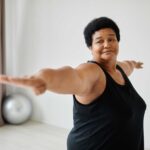
07 Nov 5 Steps for Better Sleep
We’ve all had those days when you wake up feeling worse than when you went to bed: maybe your neck hurts, or you wake up with a headache, or maybe you wake up with an arm or leg that’s numb from the way you were lying in bed. If you’re dealing with existing conditions like carpal tunnel, neck injury, shoulder problems, etc. the way you sleep can have a major impact on how you feel the next day – and even days later! Here are five tips for how to help protect yourself and your body when it’s time to get some shut eye.
- Don’t overdo it on pillows: They may make your bedroom look like it’s ready for a glossy magazine cover shoot, but sleeping with too many pillows can put you at an awkward angle and lead to muscle pain. Limit your pillows to a low “mandatory minimum” – such as one for your head, and a pillow for your knees.
- Beware sleeping on your stomach: While it can be really hard to watch what you do in your sleep, sleeping on your stomach can cause real issues for your head, neck, back, shoulders, and arms! You may find that you wake with a sore neck, and stiffness in your shoulders. If possible, avoid this position. If you just can’t break the habit, aim for a more side-sleeping position, using a pillow that keeps your neck level and a pillow between your knees to help your lower back.

- Try to make it to (your actual) bed each night. Plenty of people fall asleep on the couch or sitting upright in their favorite chair; however, your bed is a much better place to get restful, healthy sleep. Your couch and chair may pitch your neck forward, which can leave you feeling sore and achy after only a short time. If you find it hard to get off the couch, try setting a bedtime reminder on your phone.
- Try a pillow to help your back. Both back and side-sleepers may benefit from using a pillow behind and between their knees, respectively. Even a small, travel-size pillow can be enough to create comfortable support and take some pressure off your back.
- Try PT for tooth-grinding/clenching, TMD issues. If you wake up with headaches, jaw pain, and/or tension in your face and neck, you might be dealing with TMD (often called TMJ). Physical therapy is a great way to treat TMD and help restore proper movement and reduce pain and discomfort.
If your nightly routine has become a one-person boxing match, give us a call. Body One Physical Therapy is here to help with problems of the musculoskeletal system, and our team of dedicated, expert physical therapists works with clients of all ages and activity levels. We’re both locally-owned and operated, and have three locations serving Central Indiana: North Indianapolis, Fishers, and Zionsville. Don’t lose another night of peaceful sleep, call Body One today.




